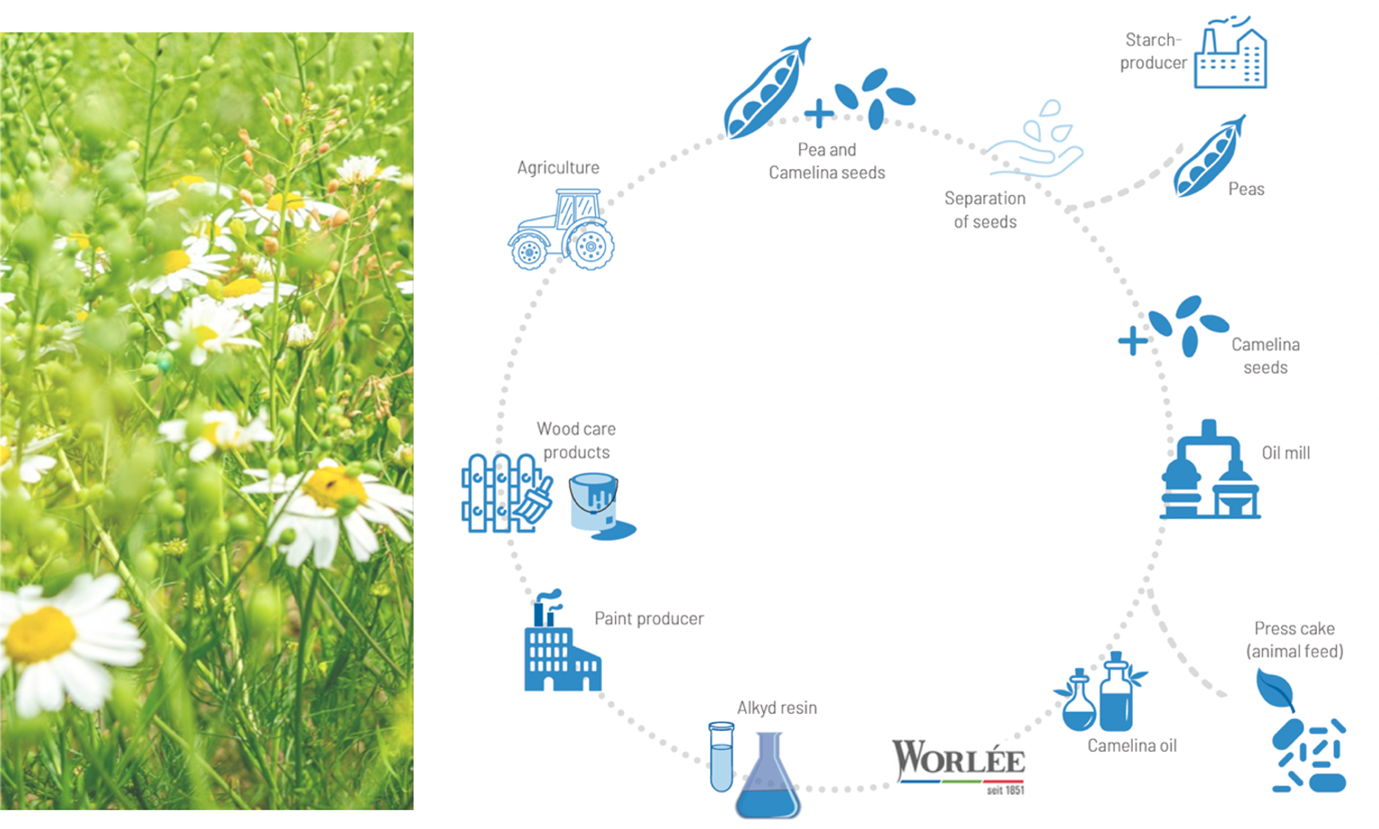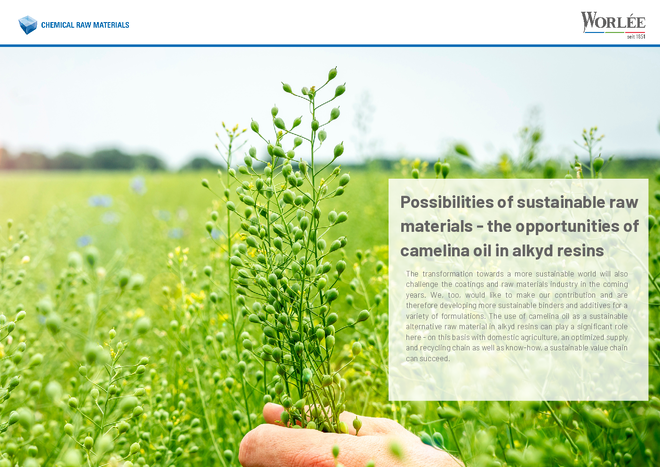Worlée introduces the sustainable benefits of Camelina Oil in alkyld resins
Camelina Oil is a more sustainable alternative raw material to Linseed oil. It is almost identical in its application results. It is water-based as well as solvent-based and solvent-free.
A chemical analysis of the two types of oils confirms this observation.
Fatty Acid Distribution | Fatty Acid Distribution | |
|---|---|---|
| Oleic acid | 22% | 14-15% |
| Linoleic acid | 16% | 17% |
| Linolenic acid | 52% | 37% |
| Gondoic acid | 17% |
Facts about camelina oil
- The oil content of the seeds is approx. 30-35%
- Is grown in mixed cultivation
- Short transport routes due to regional cultivation
- No additional oils for the production of binders needed
- Reduced use of pesticides during cultivation
For more information, please contact:


The value chain of camelina oil
WorléeSol NW 274 CA is a long oil, completely co-solvent and amine free alkyd emulsion. With its high content of renewable raw materials of approx. 75 % it allows the formulation of especially ecological glazes and wood care oils. Due to its very good compatibility with WorléeSol E 150 W, it can also be used as a combination binder to improve penetration and open time.
WorléeKyd VP CA 8004 is a low-viscosity alkyd resin with an equally high proportion of renewable raw materials of approx. 85 %.
Besides camelina oil, the alkyd is based on tall oil fatty acid as another sustainable component, which is obtained as a by-product from pulp production. WorléeKyd CA 8004 is particularly suitable for the formulation of high quality wood coatings such as glazes, clear and top coats, primarily for exterior use. It shows excellent permanent elasticity, weather resistance and very good penetration.

Water-based and solvent-based alkyd resins based on camelina oil

Tailored Cellulose Acetate Butyrate (CAB) Solutions for Modern Industry

NORRHEO Organoclays for solvent-based and solvent-free systems




